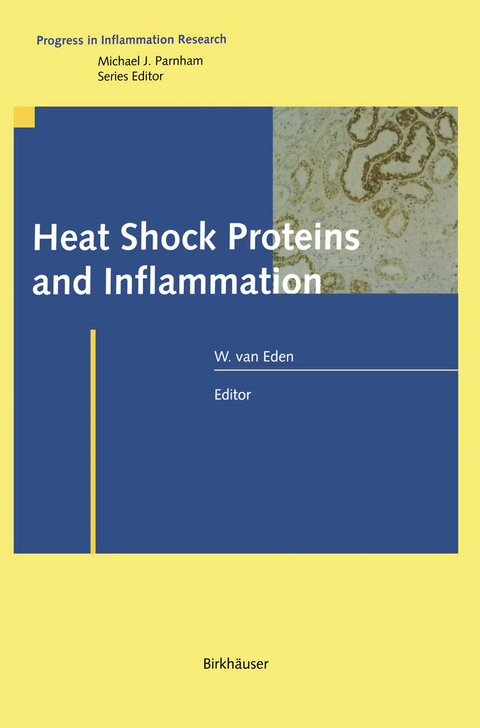
Heat Shock Proteins and Inflammation
Springer Basel (Verlag)
978-3-0348-9410-4 (ISBN)
Heat shock proteins have received ample interest by immunologists over recent years. Initially they were found to be dominantly immunogenic microbial antigens. The connection to inflammation was established when it was uncovered that T-cells reactive to HSP60 of mycobacteria had a crucial role in the induction and, more interestingly, regulation of experimental arthritis. Since then, the raised presence of immunity to HSP in virtually all conditions of inflammation, including autoimmune diseases, transplant rejection and atherosclerosis, has emphasised the critical significance of immunity to HSP in inflammatory diseases. Recently, first trials with HSP peptides were undertaken and reported in Type I diabetes and in arthritis. As this has stimulated a wide interest in this particular field the book aims at giving an update of these exciting current developments and to provide the basis for understanding the mode of action of HSP-based immunotherapeutic interventions. This will include aspects of specific adaptive immunity and aspects of innate immunity. The audience can be biologists, immunologists, microbiologists and other researchers, but also clinicians interested in the rapidly evolving field of immune-interventions. The book has its focus on immunity to HSP and its impact on the regulation of inflammation. This is the field that was developed mainly by European research groups. Other competing volumes have more emphasis on chaperone qualities of HSP and the potential application in vaccines, including anti-cancer vaccines. The book will be a combination of work carried out in experimental model systems and in patients, which includes clinical research.
HSP60 and the regulation of inflammation: Physiological and pathological.- Heat shock proteins and suppression of inflammation.- Heat shock proteins in immune response.- Heat shock protein-mediated activation of innate immune cells.- Eukaryotic HSP60: A "danger signal" for T- and natural killer cells.- Heat shock proteins and experimental arthritis.- Heat shock proteins and reactive arthritis.- The development of immune therapy with HSP60 for juvenile idiopathic arthritis.- Heat shock proteins and rheumatoid arthritis.- Heat shock proteins for immunotherapy of rheumatoid arthritis.- Immunity to heat shock proteins and atherosclerosis.- Chaperonins: Chameleon proteins that influence myeloid cells.- Heat shock protein receptors, functions and their effect on monocytes and dendritic cells.- Heat shock protein expression in transplanted kidney.- Mycobacterial heat shock proteins and the bovine immune system.- Microbial infection generates pro-inflammatory autoimmunity against the small heat shock protein alpha B-crystallin and provides the fuel for the development of multiple sclerosis.- HSP60-peptide interference with CD94/NKG2 receptors.
| Erscheint lt. Verlag | 24.10.2012 |
|---|---|
| Reihe/Serie | Progress in Inflammation Research |
| Zusatzinfo | XIII, 280 p. |
| Verlagsort | Basel |
| Sprache | englisch |
| Maße | 155 x 235 mm |
| Gewicht | 456 g |
| Themenwelt | Medizinische Fachgebiete ► Innere Medizin ► Rheumatologie |
| Studium ► Querschnittsbereiche ► Infektiologie / Immunologie | |
| Naturwissenschaften ► Biologie ► Genetik / Molekularbiologie | |
| Schlagworte | Activation • Arthritis • Bacteria • Diseases • immune response • immune system • immunity • immunotherapy • inflammation • Influence • kidney • Mycobacteria • proteins • Regulation • Rheumatoid Arthritis |
| ISBN-10 | 3-0348-9410-4 / 3034894104 |
| ISBN-13 | 978-3-0348-9410-4 / 9783034894104 |
| Zustand | Neuware |
| Informationen gemäß Produktsicherheitsverordnung (GPSR) | |
| Haben Sie eine Frage zum Produkt? |
aus dem Bereich


